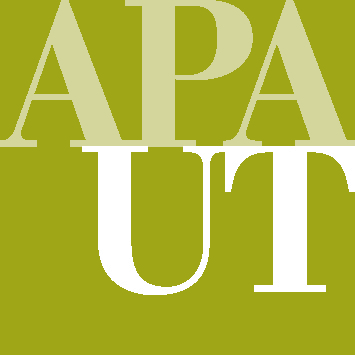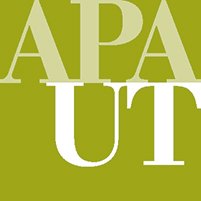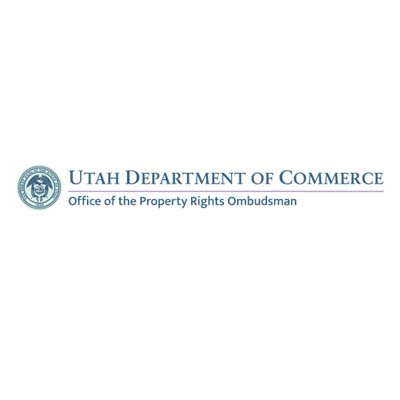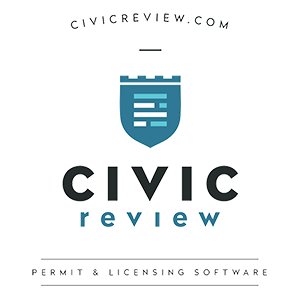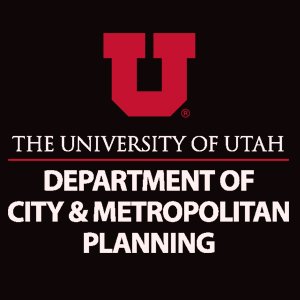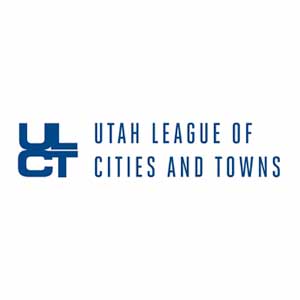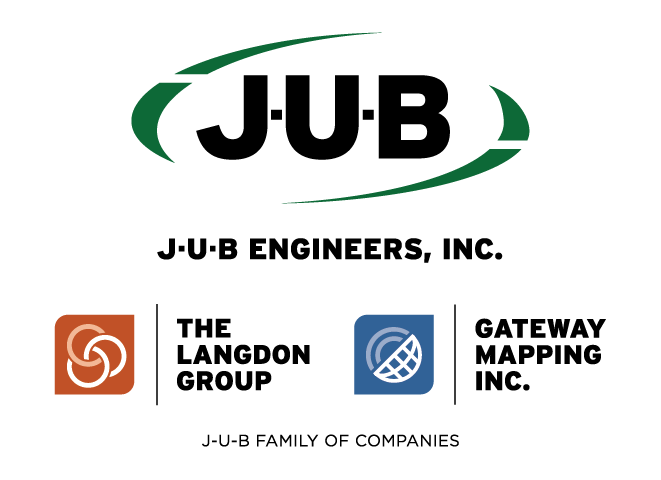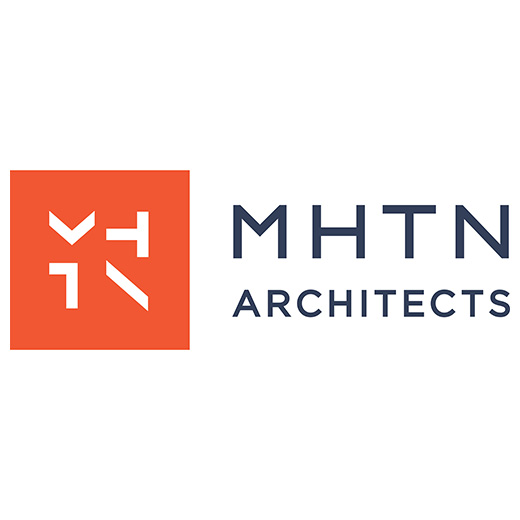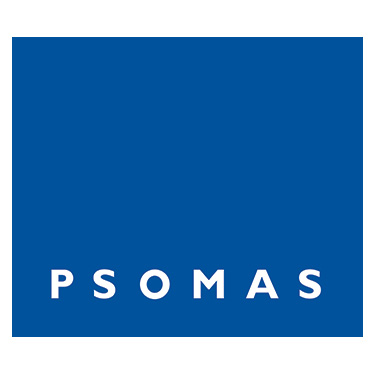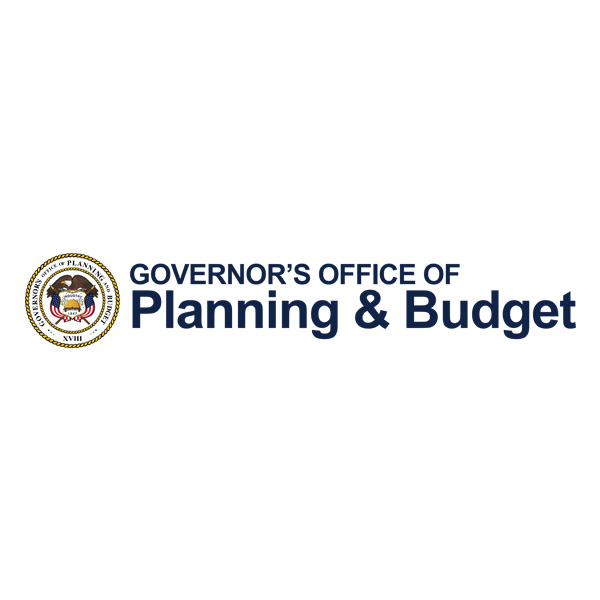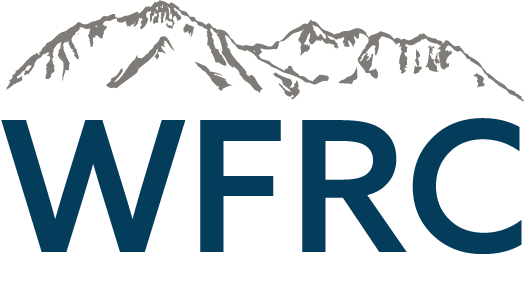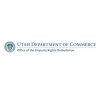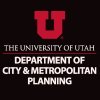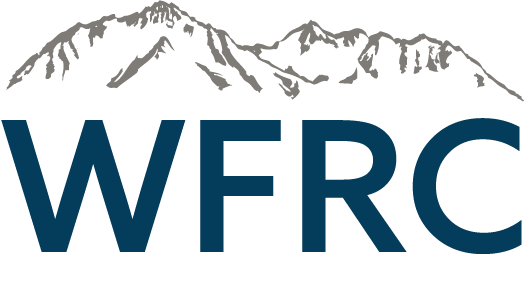2022 Rural Planning Conference of the Nevada Chapter of the American Planning Association
The 2022 Rural Planning Conference of the Nevada Chapter of the American Planning Association
CONFERENCE INFORMATION
It Lies Within the Land, Unearthing Our Future and Our Potential
Thursday, August 18, 2022 and Friday, August 19, 2022
Elko, Nevada
REGISTRATION IS NOW OPEN! The Nevada Chapter of the American Planning Association is happy to announce that the 2022 APA Nevada Rural Planning Conference will be held on Thursday, August 18, 2022 and Friday, August 19, 2022 in Elko, Nevada. The 2022 Rural Planning Conference will be held at the Elko Conference Center located at 724 Moren Way in Elko, Nevada.
General Admission: $75
Planning Official: $50 (Elected and Appointed Officials including Planning Commissioners)
You can register online, and pay using a debit or credit card, at: https://www.eventbrite.com/e/353991366707
You can also register and pay by check using the ATTENDEE REGISTRATION FORM included in this packet. Information on how to become a Conference Sponsor is also available on the SPONSORSHIP OPPORTUNITIES page and a complete CONFERENCE SCHEDULE is also included.
Plenary, breakout, and keynote sessions over this day and a half conference will focus on a variety of rural planning issues ranging from the management and use of public lands to community and economic development issues to healthcare, housing, and conservation issues. This conference will also feature a meeting of the Nevada State Land Use Planning Advisory Committee (SLUPAC) during the morning of Friday, August 19, 2022. AICP continuing maintenance credits will be offered for all plenary, breakout, and keynote sessions.
The 2022 Rural Planning Conference of the Nevada Chapter of the American Planning Association
CONFERENCE INFORMATION
It Lies Within the Land, Unearthing Our Future and Our Potential
Thursday, August 18, 2022 and Friday, August 19, 2022
Elko, Nevada
Conference Hotel
Maverick Casino Hotel (Primary Conference Hotel)
2065 Idaho Street
Elko, NV 89801
Phone: 775.738.2111
Room Rates: $105.00 + 14% Occupancy Tax (Special Conference Rate)
Room Types: Premium Kings and Premium Two Queens
Dates Rates are Available For: Wednesday, August 17, 2022 through Sunday, August 21, 2022
Check In, Check Out: After 3:00pm, Up to 12:00pm
50 rooms at the Maverick Casino Hotel in Elko, Nevada have been reserved for Conference Attendees. To take advantage of these rates, please call the reservation line at 775.738.2111 and simply ask for the “2020 NVAPA Rural Planning Conference Block” to make your registration. Cut-off date to take advantage of the special conference rate of $105.00 + 14% Occupancy Tax per night is Friday, August 5, 2022 by 5:00pm.
Suggested Non-Gaming Hotel Alternatives
Hampton Inn Elko (Government Rate, GSA Available)
674 Cimarron Way
Elko, NV 89801
Phone: 775.777.8181
Holiday Inn Express & Suites Elko (Government Rate, GSA Available)
2542 Ruby Vista Drive
Elko, NV 89801
Phone: 775.299.4800
Home2 Suites by Hilton Elko (Government Rate, GSA Available)
2572 E Jennings Way
Elko, NV 89801
Phone: 775.234.5354
The 2022 Rural Planning Conference of the Nevada Chapter of the American Planning Association
SCHEDULE-AT-A-GLANCE
It Lies Within the Land, Unearthing Our Future and Our Potential
Thursday, August 18, 2022 and Friday, August 19, 2022
Elko, Nevada
Wednesday, August 17, 2022
2:00pm to 6:00pm: Conference Set-Up; Exhibitor Set-Up
Elko Conference Center
Turquoise Room, Pre-Function Area
Day 1; Thursday, August 18, 2022
7:00am to 8:00am: Breakfast and Registration
Turquoise Room
8:00am to 8:30am: Welcoming and Opening Remarks
Turquoise Room
8:30am to 10:00am: Plenary Session No. 1
Law Session: Existing Planning Laws, Case Decisions and Trends in Nevada
Turquoise Room
10:00am to 10:15am: BREAK
10:15am to 11:30am: Break-Out Session No. 1 (Track No. 1, Track No. 2, and Track No. 3)
Track No. 1: State and Federal Transportation Planning in Nevada
Silver Room
Track No. 2: Economic and Community Development Utilizing the Main Street
Program
Ruby Room
Track No. 3: Native American Tribes: Trust, Respect, and Shared Responsibility
Turquoise Room
11:30am to 1:00pm: LUNCH ON YOUR OWN
1:00pm to 2:15pm: Break-Out Session No. 2 (Track No. 1 and Track No. 2)
Track No. 1: Noxious Weeds
Silver Room
Track No. 2: The Nevada Economic Assessment Project (NEAP)
Ruby Room
The 2022 Rural Planning Conference of the Nevada Chapter of the American Planning Association
SCHEDULE-AT-A-GLANCE
It Lies Within the Land, Unearthing Our Future and Our Potential
Thursday, August 18, 2022 and Friday, August 19, 2022
Elko, Nevada
Day 1; Thursday, August 18, 2022, Cont’d
2:20pm to 3:35pm: Break-Out Session No. 3 (Track No. 1 and Track No. 2)
Track No. 1: BLM Nevada-Wide Resource Management Plans Modernization
Project
Silver Room
Track No. 2: Between a Rock and Rural Development
Ruby Room
3:35pm to 3:50pm: BREAK
3:50pm to 5:20pm: Plenary Session No. 2
Ethics Session: The AICP Code of Ethics and Nevada’s Code of Administrative
Ethics
Turquoise Room
6:00pm: Hosted Conference Social Event
Ruby View Golf Course
2100 Ruby View Drive
Elko, Nevada 89801
Day 2; Friday, August 19, 2022
9:00am to 12:00pm: State Land Use Planning Advisory Committee (SLUPAC) Meeting
Silver Room
9:00am to 10:15am: Break-Out Session No. 4 (Track No. 1)
Track No. 1: Maximizing Nevada’s Housing Opportunities
Ruby Room
10:20am to 11:35am: Break-Out Session No. 5 (Track No. 1)
Track No. 1: Leveraging State and Federal Resources for Outdoor Recreation and
Conservation
Ruby Room
11:35am to 12:10pm: BREAK, Exhibitor Session
Turquoise Room, Pre-Function Area
The 2022 Rural Planning Conference of the Nevada Chapter of the American Planning Association
SCHEDULE-AT-A-GLANCE
It Lies Within the Land, Unearthing Our Future and Our Potential
Thursday, August 18, 2022 and Friday, August 19, 2022
Elko, Nevada
Day 2; Friday, August 19, 2022, Cont’d
12:10pm to 1:30pm: Hosted Conference Luncheon
Turquoise Room
• Welcoming Remarks
• Presentation of APA Nevada Chapter Awards
• Keynote Panel Presentation: An Overview and Discussion Regarding the Present and Future of Nevada’s Mining Industry
• Thank You and Conference Adjournment
Day 1; Thursday, August 18, 2022
8:30am to 10:00am: Plenary Session No. 1, Existing Planning Laws, Case Decisions and Trends in Nevada
Turquoise Room
Presenter: David M. Stanton
Session Description: The purpose of this session will be to educate attendees on various legal topics of interest to the planning community. The focus will be on master plans, zoning and development standards, with some discussion on regulatory takings. As the Elko City Attorney, I have observed that land use planning and control is a complex and at times controversial area of the law, where constitutionally-protected property rights intersect with a community’s need to prevent unplanned growth. From a city’s perspective, the process involves balancing a multitude of interests, including aesthetics, practicality and socioeconomic factors. However, land use regulations have been criticized for impacting property values, introducing an artificial rigidity to what should be determined by the marketplace and creating a strain on public services. This session will address the intersection between these interests with a view toward comparing the authorities given to cities through various statutory schemes, such as master planning, zoning and subdivision regulation, and authorities granted under city charters, versus rights granted under the Fifth and Fourteenth Amendments to the U.S Constitution. Current statutes and case law impacting land use planning and regulation will also be discussed.
Presenter Bio: David M. Stanton is a shareholder in the law firm of Goicoechea, DiGrazia, Coyle & Stanton in Elko, where he practices business law, civil litigation and municipal law. He holds a Juris Doctor degree from the University of South Dakota School of Law, where he was a writer and editor for the South Dakota Law Review, and a Bachelor of Science degree in geological engineering from the South Dakota School of Mines and Technology. Before coming to Elko, he served on active duty in the U.S. Army Judge Advocate General’s Corps.
10:15am to 11:30am: Break-Out Session No. 1 Track No. 1, State and Federal Transportation Planning in Nevada
Silver Room
Presenters: Kevin Verre, Tim Mueller, Jeff Sanders, Elijah Henley
Session Description: This session will focus on a variety of transportation planning activities currently underway in Nevada. The local, state, and federal transportation system affects every community in Nevada and plays an important role in enhancing safety, quality of life, and economic development. This session will provide you with better awareness of how state and federal transportation agencies work, which can be helpful to your community. First, planning staff from the Nevada Department of Transportation will discuss the One Nevada Transportation Plan, which is the state’s long-range transportation plan. This plan provides a common foundation and shared policy framework for making more informed, data-driven, transparent, and responsive transportation investment decisions. They will then discuss an effort underway to update the state’s freight plan. The objective of the Nevada Freight Plan is to provide a strategic framework for enhancing freight transportation safety, mobility, and sustainability as part of broader efforts to support the economic vitality of freight-related sectors in Nevada. The Freight Plan also makes specific recommendations on improving the state’s freight infrastructure to strengthen and diversify Nevada’s economy. Next, planners from the Federal Highway Administration will provide an overview of a project to identify unmet transportation needs to federal lands. Nevada has more federal lands than any other state, and improved access can result in improved recreation and economic development opportunities.
Presenter Bios: Kevin Verre’s career at NDOT started in 2011 as a Transit Planner which helped define his career purpose and focus in helping evolve Nevada’s transportation system to one of nation’s best. Keven serves as the Assistant Chief of Program Development and Multi-Modal Planning section for Nevada Department of Transportation (NDOT). In this capacity, Kevin oversees and/or assists with the overall Federal Programs, major corridor studies and the development of multimodal plans in Nevada including Transportation Alternatives Program, State Bicycle and Pedestrian Program, the State Rail Plan, the Statewide Multimodal Plan, and the State’s Transit Program. Kevin’s passion is focusing on improving the process of defining state’s transportation needs while keeping sight on the wide array of best practice approaches and data-driven solutions. Kevin continued to look for opportunities to advance within the Department, gaining a wider knowledge base and experience spanning many disciplines within the planning profession.
Tim Mueller started working with NDOT in 1998. My initial stop was working in the Pavement Analysis group. He learned a lot about the state transportation network, different pavement types, and how necessary pavement condition is. Tim tested the pavement by taking deflection tests using the falling weight deflectometer (FWD), friction testing, and roadbed testing. Tim also learned how to take core samples and GIS. He started working in NDOT Planning in 2000. Tim have worked on regional transportation plans, statewide transportation plans, GIS, data analysis, public outreach, website content creation, newsletters, Connecting Nevada and One Nevada Transportation Plan. Tim have also worked with many stakeholders through the Transportation Planning Advisory Committee (TPAC). Most recently, he supervises the Freight and Rail section of Multi-Modal Planning. The thing he most enjoys about NDOT is the variety. He has learned about many facets of transportation and enjoy helping the traveling public.
Jeff Sanders works as a Community Planner for the Federal Highway Administration. In this role, he plans for the transportation needs of federal lands (Forest Service, BLM, etc.) around the western United States. Jeff has worked as a transportation planner for nearly fifteen years and he has experience at the local, state, and federal levels. Prior to working at FHWA, he worked as a planner for the Utah Department of Transportation.
Elijah Henley am currently the Planning Team Leader of the Central Federal Lands Division within the Federal Highway Administration. Elijah graduated from San Francisco State in 1997 with a BA in Urban Studies and received a MA in International Relations in 2000 from Golden Gate University. Elijah started his professional career in 2000 as a Presidential Management Fellow with the Bureau of Transportation Statistics and have been with FHWA since 2005.
10:15am to 11:30am: Break-Out Session No. 1 Track No. 2, Economic and Community Development Utilizing the
Main Street Program
Ruby Room
Presenter: Shari Davis
Session Description: The Nevada Main Street program, along with the national Main Street America organization, works to create vibrant downtown areas with thriving local economies, maintaining the rich character of our unique communities and creating inviting public spaces that make residents and visitors feel like they belong. Focused on historic preservation, economic development, and placemaking, the Main Street program can be an impactful partner for rural towns, counties, and communities. This session will explain the Four Point approach to downtown revitalization and delve into affecting change through “transformation strategies”. Several Nevada Main Street success stories will be discussed. Including Main Street organizations, as well as other community organizations, in the planning process encourages collaboration, effective community development, and builds lasting partnerships, ensuring community and municipal partners keep working together towards mutual goals.
Presenter Bio: Shari Davis is the Director of Rural Economic and Community Development for the Governor’s Office of Economic Development (GOED). She oversees the CDBG and Nevada Main Street programs, as well as promoting and facilitating community development throughout rural Nevada. She grew up in Tonopah, received her degree in Anthropology from UNR, and returned to Tonopah later in life as the Tourism and Events Coordinator. As anyone working in a small town knows, one person sometimes has to wear many hats. In this case, she also ran the Tonopah Historic Mining Park (creating exhibits, giving tours, and writing grants), worked in economic development and historic preservation, and managed the community swimming pool, receiving her lifeguard and pool operator certifications. So when she says she understands the struggles and strengths of rural communities, it’s because she really has been there! She moved on to Travel Nevada, working as the Rural Programs Manager, before coming to GOED in January.
10:15am to 11:30am: Break-Out Session No. 1 Track No. 3, Native American Tribes: Trust, Respect, and Shared
Responsibility
Turquoise Room
Presenters: Clifford Banuelos
Session Description: This session will focus on how to effectively consult with Nevada federally recognized Tribes using historic examples of good and bad consultation. We will go over the consultation process that is legally required, agency policies and guidance, tribal consultation protocols and policies, and expectations from tribal leadership. We will also touch upon the unique challenges specific to Nevada regarding mineral mining and mining for new rare earth minerals needed for new technology. I will also discuss the challenges of multiagency collaborations and the resulting agreements from those collaborations.
Presenter Bios: Clifford Banuelos is the Tribal-State Environmental Liaison for the Inter-Tribal Council of Nevada (ITCN) with the State of Nevada Division of Environmental Protection (NDEP). In that role he works with bureaus under NDEP and the Tribes of Nevada to coordinate and consult on environmental projects and concerns. His program is funded by the Environmental Protection Agency (EPA) through an MOU between them and ITCN and NDEP. He also works with many other state departments and divisions and federal agencies such as US Forest Service and the Bureau of Land Management. He is a member of the Te-Moak Tribe of Western Shoshone and previous to this position, he was the Environmental Coordinator for the Elko Band of the Te-Moak Tribe, and also their Grant Writer, Transportation Planner, and Emergency Manager.
1:00pm to 2:15pm: Break-Out Session No. 2 Track No. 1, Noxious Weeds
Silver Room
Presenter: Jake Dick
Session Description: The presentation will focus on Nevada noxious weed laws and how the department enforces regulatory statutes, partnerships to address noxious listed species in Nevada, Nevada’s Early Detection and Rapid Response plan and other resources related to Nevada listed noxious species. Discussion will also focus on identification of noxious weed species that are a significant impact to Northeast Nevada.
Presenter Bio: Noxious weed coordinator position with the Nevada Department of Agriculture. Primarily responsibilities include initiating regulatory actions on noxious weed species throughout the state, coordinating with partnering agencies to address invasive plants and providing outreach and education on Nevada listed noxious weed species.
1:00pm to 2:15pm: Break-Out Session No. 2 Track No. 2, The Nevada Economic Assessment Project (NEAP)
Ruby Room
Presenter: Joe Lednicky
Session Description: The Nevada Economic Assessment Project (NEAP) aims to provide county, state, and federal agencies, and their partners, with quantitative and qualitative baseline data and analyses to better understand trends in each county’s demographic, social, economic, fiscal and environmental characteristics. The data can be used for land use and project planning, grant writing and overall policy assessment. This session will go in depth on the baseline data repository, primary data gathering completed by NEAP, and how current NEAP projects can benefit communities across Nevada. Baseline Data Repository: Methodology behind choosing secondary data sources, common uses of the data at a local level, etc. Primary Data Gathering: What primary data has NEAP collected through its time, what was the methodology behind it, and how it can be used. Current NEAP Projects: What is the NEAP team currently working on? How can these projects help (directly or indirectly) local Nevada communities? How can the NEAP team help you with your community?
Presenter Bio: Joe is an Economist with the University of Nevada Extension, Community and Economic Development program. He leads Extension’s secondary data collection efforts as well as coordinates the Nevada Economic Assessment Project (NEAP). Joe was born in Las Vegas, raised in Henderson, graduated from UNR with a degree in Mathematics, and has lived and worked throughout Nevada his entire life.
2:20pm to 3:35pm: Break-Out Session No. 3 Track No. 1, BLM Nevada-Wide Resource Management Plans
Modernization
Silver Room
Presenters: David Pritchett, Carolyn Sherve
Session Description: We present our proposed land use or resource management planning to encompass all 48+ million acres under the responsibility of Nevada State Office, Bureau of Land Management (BLM). That acreage would cover 69% of the whole State. For efficiency of scale, the project would be organized under a single Environmental Impact Statement (EIS) to produce up to 18 separate Records of Decision. After robust public engagement, each Decision document would embody a stand-alone Resource Management Plan (RMP) at a local scale, such as per BLM Field Office or National Conservation Area. The 12 RMPs currently in-effect range in age from 7 to 36 years, at an average age of 22. Conflict thus remains unresolved, especially for renewable energy, recreation areas, wildlife migration, minerals leasing, cultural sites, and land conservation, amongst other issues. For BLM, resource management planning is like the public lands equivalent to municipal zoning. But instead of local-government planning for multi-modal transportation interfacing with industrial development and mixed-use residential at a small 100-acre site, for example, BLM planning could address big game migration corridors where off-highway vehicle recreation juxtaposes with a solar energy field at a small 10-thousand-acre site in the shadow of a Native American traditional cultural property.
Our guiding law, the Federal Land Policy and Management Act of 1976, requires BLM to develop, maintain, and revise land use plans under the principle of multiple use and sustained yield. RMPs are the basis and direction for every on-the-ground action that BLM undertakes, such as energy generation and transmission, grazing, recreation, and habitat conservation, while protecting scientific, scenic, historical, ecological, air quality, water resource, and archeological values. Multiple use and sustained yield principles often requires trade-offs among environmental, social, and economic values. The Nevada landscape then becomes a mosaic of public land uses, from high montane bristlecone pine forests to wide valleys of playa lakebeds.
Our Nevada-wide RMPs Modernization Project shows many advantages over a traditional approach of smaller areas covered by a single RMP completed every 6 years or so. For example: (1) Efficiency through a single EIS would allow meeting the timeline goal for completion by October 2025; (2) Brings half the current RMPs into the 21st Century; (3) Assures consistency, such as leasing stipulations and siting of energy projects; (4) Incorporates recent draft RMPs never completed and several overlay Amendments, including the multi-State Greater Sage-
Grouse 2015 Plan or the Solar Energy 2012 Plan; (5) Integrates latest standards for geospatial data, accessible through a map-based website that can be continuously updated; (6) Satisfies long pent-up demand for updated RMPs. We already benefit from a head start, with several pre-planning inventories and assessments completed or underway, such as mineral potential, scenic resources, Lands with Wilderness Characteristics, ethnographic surveys, and economic baselines (latter through Nevada Economic Assessment Project, NEAP).
While we wish to kick-off the project next November, the latest status of our RMPs Modernization Project sits in a detailed proposal now under review by BLM Headquarters. Our total cost estimate is nearly $10 million, a tremendous bargain considering the entire 48-million-acre RMP area. We have heard hints that our Nevada-wide RMPs project may not attain the threshold of available funding for next fiscal year, because higher national priorities emphasizing plans for specific National Monuments. Of course, Monuments are fantastic public lands, but they already enjoy detailed land management direction and substantial resource protection through their enabling legislation or Presidential Proclamation. Our Nevada-wide RMPs Modernization website easily is found with a search for BLM+ Nevada+ Plan
Presenter Bios: David Pritchett is the Planning and NEPA Program team lead for BLM Nevada State Office, in Reno. He has enjoyed this role for U.S. Bureau of Land Management since 2013, with (so far) 17 years Federal service amongst 4 agencies, in addition to a variety of consulting experience for non-profit conservation organizations and corporate clients. Recreational interests include dispersed truck campering, historic preservation, gardening, photography, bike riding, birding, botanizing, blues, and barbecue. College a long time ago was at University of California, Santa Barbara, with a later Masters degree in restoration ecology and wetland science from University of Wisconsin, Madison. The BLM Nevada planning public website can be found by searching: blm + nevada + planning or at this link: https://www.blm.gov/programs/planning-and-nepa/plans-in-development/nevada
Carolyn Sherve is a Planning and Environmental Specialist at the Bureau of Land Management, Nevada State Office. She has worked for the BLM for 30 years in California, Nevada, and Montana in the fields of Archaeology and Planning & NEPA. She has been lucky enough to have worked on both the 2015 (BLM Montana) and 2019 (Nevada) Greater Sage-Grouse (GRSG) Plans. Carolyn also recently completed a 10-month detail as the Nevada GRSG Implementation Project Lead. Carolyn has a Master’s degree in Anthropology with an emphasis in Archaeology from the University of Nevada, Reno, and a Bachelor’s degree in German with a History minor from the University of Montana. In her spare time, Carolyn does a lot of hiking with her three dogs in hills outside of Fernley NV, as well as working on home improvement projects. She also takes themed photos of her dogs and cats for each holiday.
2:20pm to 3:35pm: Break-Out Session No. 3 Track No. 2, Between a Rock and Rural Development
Ruby Room
Presenter: Sheldon Mudd
Session Description: Very few would argue that community and economic development within rural portions of the United States is difficult at best. Rural communities often lack the workforce, resources, and amenities that companies look for when exploring new sites for relocation or expansion. For the “boots on the ground” economic developers who are actually working in these
communities, the challenges associated with this task is far more intricate than the cursory elements that are routinely mentioned. As a result, they continually find themselves in a “catch 22” or “between a rock and a hard place” trying desperately to make one element of development work so that the rest of their initiatives will hopefully fall in line.
Presenter Bio: Sheldon Mudd is the Executive Director for the Northeastern Nevada Regional Development Authority (NNRDA), an organization that oversees the economic development pursuits of four Nevada counties; Lander, Eureka, Elko, and White Pine. In addition, Mudd is a small business owner and serves on several boards dedicated to community service. Mudd previously served as the Mining Industry Specialist for the Governor’s Office of Economic Development where his experience in Nevada’s Mining industry were utilized to meet statewide economic development goals. Further, Mudd is a United States Air Force Veteran serving from 2000-2005 where, as a non-commissioned officer, he led teams in disaster preparedness, communications security, and the Ceremonial Honor Guard. Mudd graduated from Wayland Baptist University with a B.S. in Business Administration in 2010 and a M.A. in History in 2013.
3:50pm to 5:20pm: Plenary Session No. 2, The AICP Code of Ethics and Nevada’s Code of Administrative
Ethics
Turquoise Room
Presenters: Michael Harper, Frederick Steinmann
Session Description: This American Institute of Certified Planners (AICP) Code of Ethics and Professional Conduct serves three purposes: first, defining the aspirational principles for all those who participate in the planning process, whether as planners, as advisory bodies, or as decision-makers; second, defining the rules of practice and behavior to which all members of the AICP are held accountable; and third, defining the procedures for enforcement of these rules. This session will present a comprehensive overview of the AICP Code of Ethics and Professional Conduct as well as a general discussion regarding the application of ethical decision making to practical situations that planning professionals and other public sector and private sector individuals might face. This session will also present a comprehensive overview of the State of Nevada’s Code of Administrative Ethics and how to apply the Code of Administrative Ethics to practical situations and ethical dilemmas that session attendees might one-day face.
Presenter Bios: Mike Harper, FAICP, is retired from a 32 plus year local government planning career, primarily as a department director and program manager with Washoe County, NV. His professional organization leadership positions have been with American Planning Association; American Institute of Certified Planners; American Society for Public Administration; National Association of County Planners; and Western Planning Resources, Inc. For over 30 years he was involved with Lake Tahoe as chair of the Tahoe Regional Planning Agency’s advisory planning commission, chair of the Tahoe Transportation District and Commission, Chair of the State of Nevada commission on the purchase of land in the Lake Tahoe Basin; and as Washoe County’s permanent alternate on the Tahoe Regional Planning Agency’s Governing Board.
Frederick Steinmann currently works for the University of Nevada, Reno and the University Center for Economic Development. He began his professional economic development career with the Reno Redevelopment Agency in the City of Reno, Nevada. He has worked for the Nevada Small Business Development Center, Bureau of Business and Economic Research, and for the Carson Economic Development Services Department in the City of Carson, California. Frederick has also worked as a Senior Associate for David Paul Rosen & Associates, one of the elite economic development and public policy consulting firms in California. Frederick earned his Doctorate in Policy, Planning, and Development from the University of Southern California and a Bachelor’s of Science and Masters of Science in Economics from the University of Nevada, Reno.
Day 2; Friday, August 19, 2022
9:00am to 10:15am: Break-Out Session No. 4 Track No. 1, Maximizing Nevada’s Housing Opportunities
Ruby Room
Presenter: Katie Coleman (Featured Panel Discussion)
Session Description: It is virtually impossible to have a discussion about Nevada’s future without the topic of housing joining the party. Housing has always been a crucial component of Nevada’s vitality, but the pandemic seriously illuminated decades-old housing challenges our communities have faced and also presented some once-in-a-lifetime opportunities to make a dent in our housing deficits. Attendees will hear from a panel of “housers” who either create, support or advocate for housing of all shapes and sizes in rural Nevada. Panelists will not only bring their expert insights on why housing should be on the forefront of the planning process, but how it can be folded into the planning process in smart, effective, and efficient ways. What can our local governments do to help? How can we help build community will? What should be done to ensure housing is a leading planning tool instead of an afterthought? This session will explore answers to these questions and potential solutions such as zoning work, infill options, developer incentives and recognizing housing as a working mechanism of economic development. Nevada has a lot of hard and important housing work to do – and it’s entirely possible with the right tools, relationships, and commitment to the long-haul.
10:20am to 11:35am: Break-Out Session No. 5 Track No. 1, Leveraging State and Federal Resources for Outdoor
Recreation and Conservation
Ruby Room
Presenters: Colin Robertson, Matthew Weintraub, Brandon Bishop
Session Description: The Nevada Statewide Comprehensive Outdoor Recreation Plan (SCORP) and the Nevada Agreement for Recreation Shared Stewardship provide a framework for the collaborative development, stewardship, and enjoyment of recreation across Nevada’s public lands. These plans and collaborations offer an opportunity to enhance our communities while providing economic development and sustainable outdoor recreation opportunities across Nevada. This session will offer an overview of these tools and how they can be utilized by local governments to access federal and state funding sources for the development of outdoor recreation opportunities and conservation projects across the state. This session will include an overview of funding sources available to local governments from the Nevada Department of Conservation and Natural Resources, including the Land and Water Conservation Fund, Recreational Trail Program, Conserve Nevada, Off Road Nevada Grant Program, and will provide insights around trends in recreation across rural communities as highlighted by the Nevada SCORP and how outcomes of the plan can be achieved by these communities.
Presenter Bios: Matthew Weintraub is the Deputy Administrator of the Nevada Division of Outdoor Recreation. He comes to Nevada with over a decade of outdoor recreation policy experience including as the State and Federal Advocacy Director for the Oregon Mountain Biking Coalition, and most recently as the Tourism Program Manager for the City of Oregon City. He has worked in urban, suburban, and rural communities across the Pacific Northwest and enjoys creating scalable solutions which seek to improve equitable access to outdoor recreation opportunities.
Colin Robertson is the Administrator of the Nevada Division of Outdoor Recreation. For nearly two decades, Robertson has served in a variety of leadership roles in the public, private, and nonprofit sectors. His many professional endeavors and achievements have focused on
community engagement and corporate social responsibility, strategic organizational partnerships and cross-cutting collaboration, sustainable business and economic development, education, and environmental sustainability. He has served as Curator of Education for the Nevada Museum of Art in Reno, and was the Director of Communications and Strategy for the Don J. Clark Group, where he led and oversaw environmental sustainability initiatives. Most recently, Robertson served as the Vice President of Switch WORKS.
Brandon Bishop is the Conserve Nevada Program Manager. Bishop has experience in environmental, energy & water conservation, economic development, and sustainable planning. He has managed numerous environmental programs in the public and nonprofit sectors. Bishop served as the Director of Sustainability of Whitman College and as the Energy and Water Conservation Supervisor of the University of Colorado Colorado Springs. Prior to his tenure with DCNR Bishop served as a member of the Global Trade & Economic Development team at the Nevada Department of Agriculture.
12:10pm to 1:30pm: Hosted Conference Luncheon, Keynote Panel Presentation
An Overview and Discussion Regarding the Present and Future of Nevada’s Mining
Industry
Turquoise Room
Presenters: Allison Anderson, Drew McGregor, Matthew Miller, Garrett Wake, Greg Walker
Session Description: As an industry, Nevada’s mining and natural resource extraction sector is a significant driver of local and statewide economic activity and is a primary source of employment for many of Nevada’s more rural and non-metropolitan communities. This panel discussion will feature a facilitated discussion on the unique planning challenges and issues that are often encountered related to mining and natural resource extraction operations in Nevada. Additional topics to be covered during this panel discussion include the broad economic impacts that the mining and natural resource extraction industry sector has had, currently has, and is anticipated to
have in the future and how different mining and natural resource extraction firms and the entire industry are engaging with local communities on a variety of community and economic development issues.
Presenter Bios: Allison Anderson is the Community and Government Relations Manager at i-80 Gold. She oversees the communications and strategic development for i-80 Gold’s ESG and mining sustainability. Prior to joining i-80 Gold, she worked at the Nevada Mining Association as the Chief of Staff. In this role she collaborated to bring public awareness about Nevada mining and established industry support in communities across the state. Allison has spent the past decade managing marketing, public relations, and communications strategies within the veterinary, healthcare, luxury real estate, and mining industries. Allison is the Chair of the NVMA Education Committee and serves on the Girl Scouts of Sierra Nevada Leadership Committee, McCaw School of Mines Board, and the Washoe County School District Superintendent’s Task Force.
Garrett Wake is the Southern Nevada Programs Manager for the Nevada Division of Minerals. Garrett graduated with his B.Sc. in Geology from the University of Nevada, Las Vegas in December of 2012. Upon graduation, he began his geology career with ZIA Geological, a small, contract petroleum-well-logging company in Artesia, NM. He then transitioned into the metals industry, where he worked for Castle Mountain Venture, a junior gold-exploration company in Henderson, NV., with land holdings in San Bernardino County, CA. Garrett then spent a short time working for Terracon, a geotechnical engineering firm in Las Vegas, NV., on the Interstate 11 – Boulder City Bypass Project. He has worked at the Nevada Division of Minerals since 2015 and has also served as member of the U.S. Air Force, Reserves and Air National Guard for a combined 16 years.
Greg Walker has been the Executive Managing Director for Nevada Gold Mines since the Joint Venture was formed on July 1st, 2019. Prior to leading Nevada Gold Mines, Greg was Barrick’s Senior Vice President, Operational and Technical Excellence, where he was responsible for driving transformational business improvement across Barrick’s operations. He joined Barrick in 2003 and progressed to senior operational leadership roles including General Manager of the Tulawaka mine in Tanzania, General Manager of the Bulyanhulu mine in Tanzania, Executive General Manager of the Porgera joint venture in Papua New Guinea, and Executive General Manager of the Pueblo Viejo mine in the Dominican Republic. He holds a post graduate diploma in Extractive Metallurgy from Western Australian School of Mines. Greg lives in Elko, Nevada with his wife and two children
Register
-
Rural Planning Nevada APA
August 18, 2022 - August 19, 2022
8:00 am - 5:00 pm
